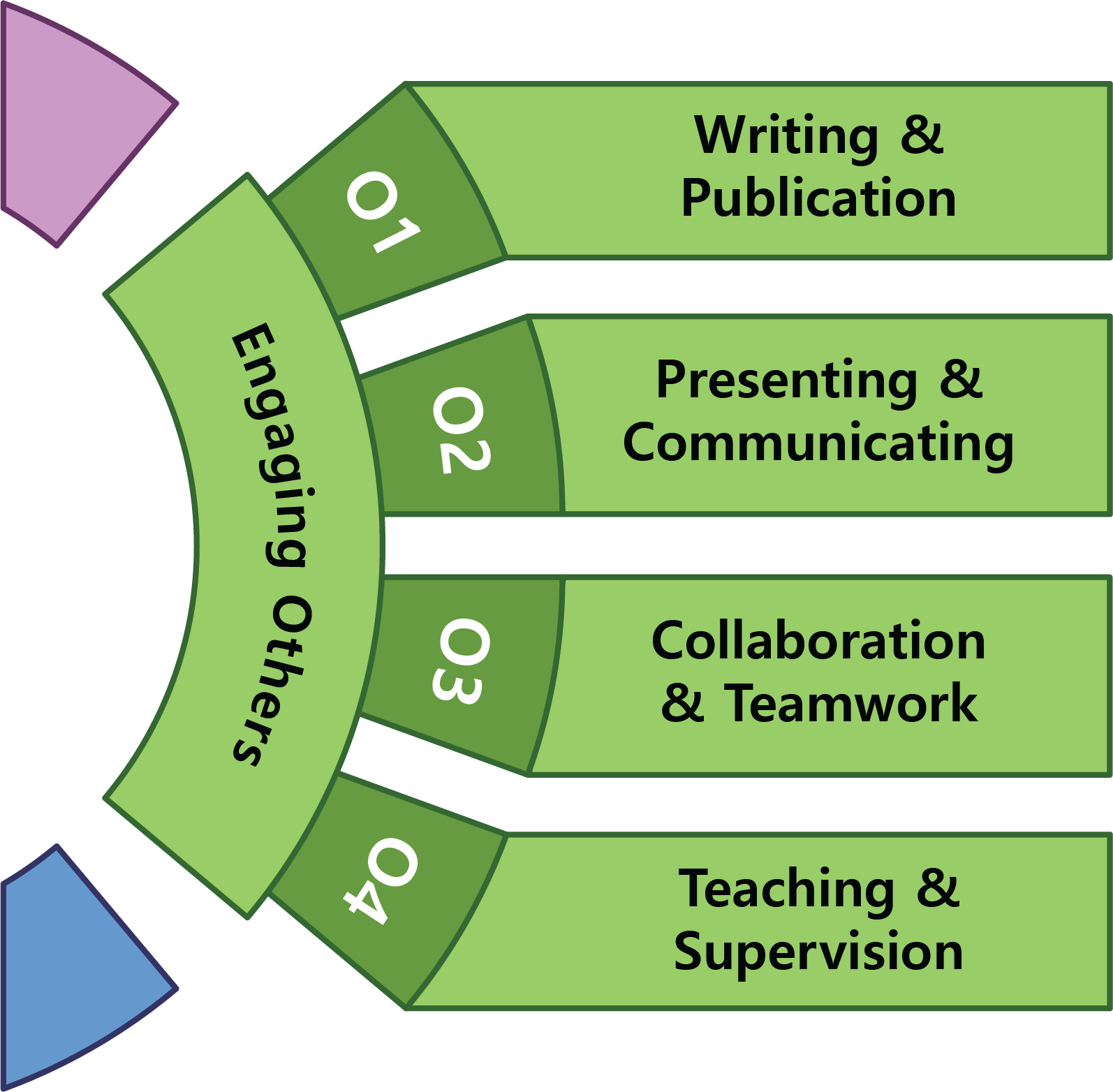Engaging Others
No researcher is an island; there are four essential communication and collaboration skills that make up this section of the CamRDF:

Jump to:
- O1: Writing & Publication
- O2: Presenting & Communicating
- O3: Collaboration & Teamwork
- O4: Teaching & Supervision
O1: Writing & Publication
"I can write clearly about my research in a range of contexts."
Good writing skills are essential to publishing papers, crafting funding proposals and engaging with the public conversation around research. You need to be able to write clearly while tailoring your message to suit the audience and the outcome you're looking for, whether that's fellow specialists, readers of a public blog, funding committee members, and so on.
You also need to understand the academic publishing landscape, impact and peer review.
We provide a range of development opportunities in this area, through both workshops on writing and publication and online resources.
The Language Centre also has an excellent set of online resources on Academic Writing, aimed at international students but still highly relevant to native English speakers, addressing topics such as argumentation, clarity and editing. For a specific focus on public engagement, see the Engaged Researcher programme.
O2: Presenting & Communicating
"I can present my research impactfully to a range of audiences."
In a research context, impact can be defined as success in persuading others to change what they do or think. As a researcher, it is your responsibility to persuade relevant audiences that your findings are important, and to explain clearly what you want those audiences to do differently. This could be fellow specialists, researchers in other fields, policy-makers, funding bodies, commercial organisations, schoolchildren, and so on.
Good presentation and communication skills are vital to disseminating your research at conferences or events, forming useful connections with fellow researchers, promoting (your) research publicly and being successful in meetings and interviews. The setting can vary, but the skills remain similar: you might be talking in a lecture theatre, a YouTube video, a recording booth, a meeting room, etc.
We provide a range of development opportunities in this area, through both workshops on communicating and presenting and online resources.
For a specific focus on public engagement, see the Engaged Researcher programme.
O3: Collaboration & Teamwork
"I can collaborate effectively and work with others in teams."
Collaboration is a fundamental feature of research: even if you are not part of a specific research team, you need to be able to share ideas, data, insights and conclusions with colleagues in your field and beyond.
As research becomes ever more interdisciplinary, as well as being able to work effectively with others in your immediate research group you will also need to develop an understanding of how to foster productive collaborations reaching across disciplines - and perhaps countries - that enable all parties to be successful.
We offer a range of workshops on collaboration and working with others.
You can also develop these skills by undertaking collaborative projects or engaging in experiential training such as the i-Teams programme.
O4: Teaching & Supervision
"I can employ a range of effective teaching and supervisory approaches and adapt to different learning environments."
Within a university, teaching can take many forms, both formal and informal. You could be lecturing, teaching small classes, leading lab demonstrations or supervising a more junior member of your research group.
Teaching ability is a critical part of a researcher's portfolio, but being able to instruct and guide others is an important skill for any professional to develop.
As part of the Cambridge Centre for Teaching & Learning - the central provider of teaching development opportunities in the University - we provide several workshops appropriate for postgraduates on teaching and supervising, including mandatory training for those supervising undergraduates for the first time.
